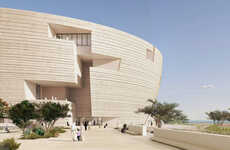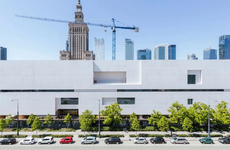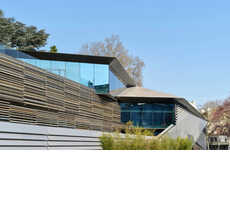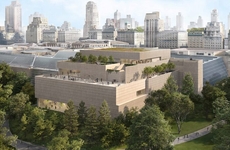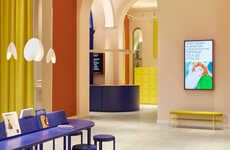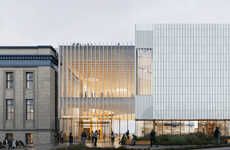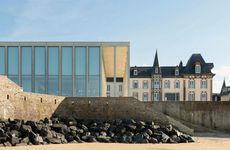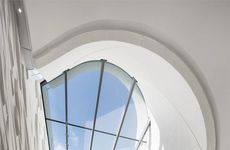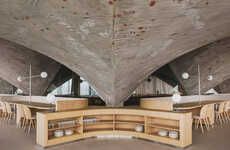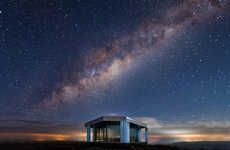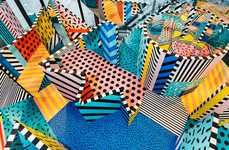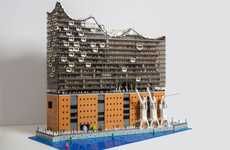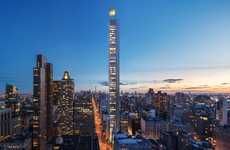
The National Museum Zurich has a Juxtaposed Modern Wing
Joey Haar — July 19, 2017 — Art & Design
References: dezeen
The National Museum Zurich was once a staid, traditional museum building in the old European Renaissance style. Like many other museums around the world, though, the NMZ has made use of architecture in order to demonstrate its forward-thinking ideology. The museum recently opened a new wing that is primarily made from concrete in the Bauhaus style, drastically differing from the original buildings on the grounds.
The stark tan wing was designed by Christ & Gantenbein, and it follows in the footsteps of other, similar projects. One of the most famous of those is 'The Crystal' that extends off of the Royal Ontario Museum in Toronto. Michael Lee-Chin's controversial design sprouts from the relatively uninspiring building that houses natural and cultural artifacts, referencing both the museum's gem and mineral collection and its willingness to think differently.
The stark tan wing was designed by Christ & Gantenbein, and it follows in the footsteps of other, similar projects. One of the most famous of those is 'The Crystal' that extends off of the Royal Ontario Museum in Toronto. Michael Lee-Chin's controversial design sprouts from the relatively uninspiring building that houses natural and cultural artifacts, referencing both the museum's gem and mineral collection and its willingness to think differently.
Trend Themes
1. Architectural Modernization - The trend of incorporating modern architectural designs into traditional buildings is creating opportunities for disruptive innovation in the construction and design industries.
2. Bauhaus Revival - The revival of Bauhaus style in contemporary architecture is an emerging trend that presents disruptive innovation opportunities in the fields of interior design and urban planning.
3. Symbolic Extensions - The trend of using architectural extensions to symbolize the forward-thinking ideologies of institutions, such as museums, is opening up disruptive innovation opportunities in the field of architectural symbolism and messaging.
Industry Implications
1. Construction - The trend of incorporating modern architectural designs into traditional buildings is creating opportunities for disruptive innovation in the construction industry, such as new techniques and materials.
2. Design - The Bauhaus revival trend in contemporary architecture is prompting disruptive innovation in the design industry, with a focus on minimalist aesthetics and functionalism.
3. Museums - The trend of using architectural extensions to symbolize ideologies in museums presents disruptive innovation opportunities in the museum industry, such as immersive exhibition spaces and interactive installations.
0.3
Score
Popularity
Activity
Freshness


